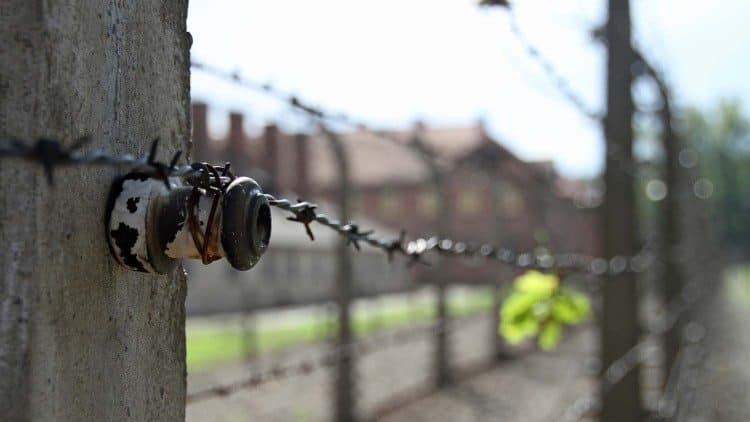“May the memory and condemnation of that horrible extermination of millions of Jews and people of other faiths, which took place in the first half of the last century, help us all not to forget that the logic of hatred and violence can never be justified, because they deny our own humanity.” The words spoken by Pope Francis on January 24 during the general audience can overlap with those of the writer Primo Levi, a Holocaust survivor in the hell of Auschwitz. The most famous of his writings bears a significant title: “If this is a man…”. Levi wondered by what right a murderer could call himself a “man”, since he had lost his humanity. That is why the prisoners – as Levi pointed out -, although deprived of all rights, exposed to all insults and condemned to certain death, still had a power and had to defend it with all their strength: the power to refuse to consent to what it was happening. The prisoners refused to consent to humiliation, abuse and death. This refusal to accept the imagined ideology of “superhumans” and “subhumans” was the hallmark of being human in an inhuman place.
Inhuman places on Earth
The Germans created the Auschwitz-Birkenau, Treblinka, Belzec, Sobibor, Majdanek, Stutthof and Kulmhof concentration camps on Polish soil for terribly practical reasons. The largest number of Jews in the world lived on Polish soil, which was completely under German administration. According to statistics, in 1931 there were 3.1 million citizens of Jewish origin in Poland. Such a large group did not need to be deported far away.
The little-known “Operation Reinhardt”
On January 20, 1942, a conference of the highest officials of the Third Reich was held in Wannsee, near Berlin, chaired by Reinhard Heydrich. On this occasion, the decision was made to “definitively resolve the Jewish question” (Endlösung der Judenfrage). In practice, this meant the genocide of the Jews throughout Europe. On the night of March 16-17, 1942, the Nazis, liquidating the Lublin ghetto, began operation “Reinhardt”. Their goal was to exterminate almost 2 million Jews in the General Governorate (part of Polish territory occupied by the Nazis). The Operation, whose headquarters were in Lublin, was directed by Odilo Globocnik, one of the cruelest Nazi executioners. As part of Operation “Reinhardt”, three concentration camps in Bełżec, Sobibór and Treblinka were created or expanded, which were “death factories”. The first deportations of Jews to extermination camps within the framework of Operation “Reinhardt” began from the Lublin ghetto to the Belżec extermination camp on March 17, 1942. The Sobibór extermination camp began operations in May 1942 The first deportation of Jews to the Treblinka II extermination camp began on July 22, 1942. These were Jews from the Warsaw ghetto. Jews were deported to extermination camps not only from ghettos throughout occupied Poland, but also from other parts of Europe, including Italy. Operation Reinhardt officially lasted until November 3 and 4, 1943. During its course, the German Nazis exterminated almost 2 million Jews.
The Popes at Auschwitz
Three Popes visited Auschwitz-Birkenau. John Paul II, as Pope, visited this place on June 7, 1979, but he had been there many times before. At Auschwitz, he had stressed that “we must think with fear about this which was one of the frontiers of hatred.” “We find ourselves,” he said, “in a place where we want to think of each town and each person as a brother.” Benedict XVI was there in 2006 and confessed how this visit was “particularly difficult and overwhelming for a Christian, for a Pope who comes from Germany.” In reference to the multilingual tombstones that commemorate the victims, his words were: “Behind these tombstones hides the destiny of countless human beings. They shake our memories, they shake our hearts.” Pope Francis visited Auschwitz-Birkenau on July 29, 2016 and did not say a word. We are left with the memory of his testimony of silence and prayer. In the Book of Remembrance of Auschwitz, the Pope wrote words that can become our prayer on Remembrance Day: ‘Lord, have mercy on your people! Lord, forgive such cruelty.”
Pawel Rytel Andrianik – Vatican City










